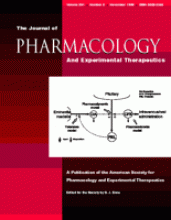Abstract
We tested the ability of captopril treatment (50 mg/kg/day p.o.), initiated 2 weeks before stroke or up to 5 days after stroke, to alter the onset of stroke and death after stroke in Kyoto Wistar stroke-prone spontaneously hypertensive rats (SHRsp). The benefits of blood pressure and aldosterone suppression during captopril treatment were assessed. SHRsp developed a 100% mortality rate with intracerebral hemorrhage by 16 weeks of age. Captopril treatment, started 2 weeks before or at the initiation of stroke, suppressed plasma aldosterone and equally prevented mortality to a mean age of >27 weeks. Treatment started 5 days after stroke extended the mean lifespan to >23 weeks. The re-elevation of plasma aldosterone (via osmotic pumps to levels in untreated SHRsp) during captopril treatment, before stroke, allowed stroke to develop. The initiation of the latter manipulation in pre- or poststroke captopril-treated SHRsp at a latter age (23 weeks) didn’t alter the lifespan of SHRsp (death occurred at about 28 weeks). The antistroke effects of captopril treatment occurred without an antihypertensive effect, weren’t altered by enhancing hypertension during treatment (with dexamethasone), and couldn’t be duplicated by antihypertensive treatment with hydralazine. Spironolactone treatment didn’t duplicate the effects of captopril. The suppression of plasma aldosterone may retard the onset of stroke in SHRsp during captopril treatment but likely other factors prolong life in pre- and poststroke SHRsp receiving long-term captopril treatment. The observation that spironolactone treatment couldn’t duplicate the effects of captopril suggests that aldosterone may facilitate stroke through nongenomic receptor mechanisms.
Footnotes
-
Send reprint requests to: Dr. J. S. Smeda, Division of Basic Medical Sciences, Health Sciences Centre, Room H4354, Memorial University of Newfoundland, St. John’s, Newfoundland, Canada A1B 3V6. E-mail:jsmeda{at}morgan.ucs.mun.ca
-
↵1 This work was supported by a grant from the Heart and Stroke Foundation of Newfoundland and Labrador (J.S.).
- Abbreviations:
- SHRsp
- Kyoto Wistar stroke-prone spontaneously hypertensive rats
- SHR
- Kyoto Wistar spontaneously hypertensive rats
- ACEI
- angiotensin-converting enzyme inhibitor
- MANOVA
- general linear model of multivariant analysis of variance
- AII
- angiotensin II
- MCA
- middle cerebral artery
- Received February 10, 1999.
- Accepted August 9, 1999.
- The American Society for Pharmacology and Experimental Therapeutics
JPET articles become freely available 12 months after publication, and remain freely available for 5 years.Non-open access articles that fall outside this five year window are available only to institutional subscribers and current ASPET members, or through the article purchase feature at the bottom of the page.
|






